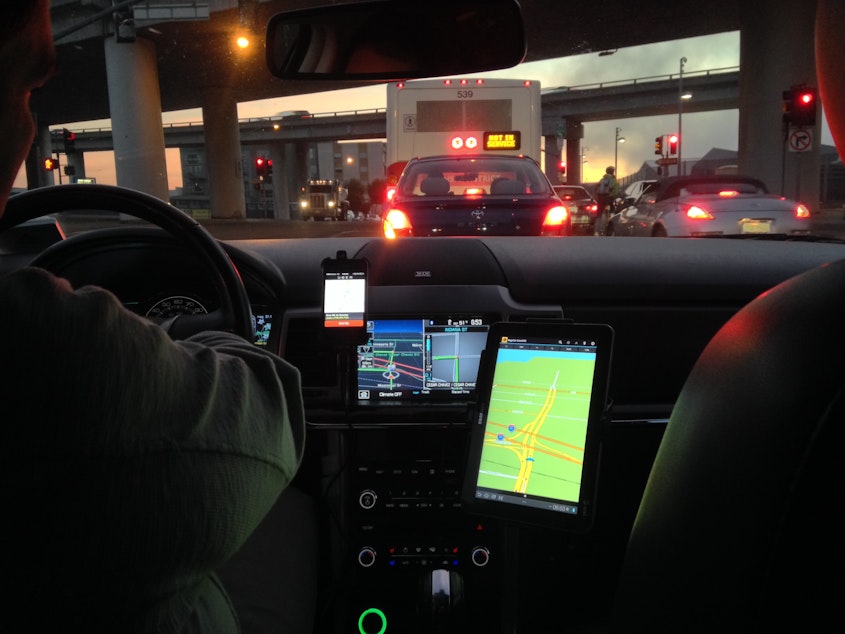Uber to work, and Seattle-area transit might pay some of the fare

Many commuters drive from home to transit, often because there isn’t a bus or Vanpool that works for them.
But the Puget Sound region’s growing population means there’s less room for driving and parking cars. Now transit agencies are considering a surprising solution: Should they work with Uber and other networked ride-hailing services? It's a question that has been asked in at least 50 other places.
“How can we partner with Uber and Lyft?” asked Chris O’Clair, strategy manager at King County Metro. “They might be able to provide those connections in some of these less-dense areas, and they might be able to do it in a more cost-effective way."
Altamonte Springs, Florida, was one of the first cities to partner with Uber.
“These days you can live through your phone,” City Manager Frank Martz said. “It seems to us that you should be able to move through your phone too.”
Sponsored
Dozens of agencies have followed suit.
“They’re coming to us with a challenge and saying, 'How do I make it easier for a commuter to get from his door to the train station?” said Andrew Salzberg, Uber's head of transportation policy and research.
But can ride-hailing apps be cheap enough to use every day?
Altamonte Springs pays for part of the ride. Pierce Transit says it will do the same starting this summer.
King Country Metro hasn’t worked out details, but it is starting on the Eastside this spring. It’s part of a plan to offer commuters an alternative when the South Bellevue Park and Ride closes for light rail construction next year.
Sponsored
Ride-hailing companies are disrupters, fighting their way into many cities. They may also be the missing transit link.
